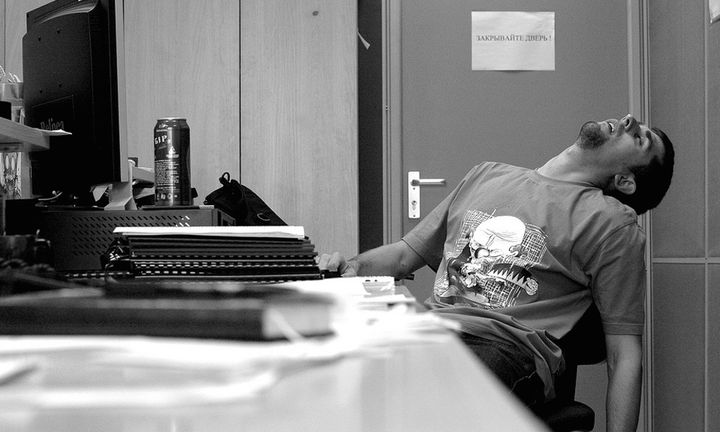
Working hard can feel productive, but that's not always true. There's a big difference between working hard and working smart, and it can sometimes take people years before they figure out the difference (if they ever do).
A karate teacher of mine once said: “Practice doesn't make perfect. Perfect practice makes perfect.” (He stole it from Vince Lombardi).
Workaholics seem busy, but they usually aren't getting as much done as it may seem. They're rushing about and work is clearly important to them, but the results they get just don't match up with the effort they put in. Trying to get too much done at once can prevent you from doing anything important at all.
So how do you work smart without getting bogged down in illusions of productivity? Think about these common scenarios and see if they might apply to you.
Not creating real value with your work
Keeping your head down and focusing on the task at hand can feel good, but what if it's not the best thing you could be doing?
Let's take a topic everyone can relate to: looking for a job. Sending out that resume feels good, right? Some people on the hunt will find dozens of jobs every week, sending basically the same resume to every one because you can apply to more jobs that way.
Doing all this feels like work, so if you applied to 10 jobs you can feel pretty satisfied with yourself at the end of the day.
But were you doing quality work? Sending out the same resume to every job is efficient, but you also miss out on the personal touch you can provide. A resume and cover letter that you customize will take longer, but it will make a much bigger impact on your potential employer.
Not only will you have a better chance of being noticed, they'll see that you put a lot of time and effort into initiating that relationship. This is quality over quantity, and it can actually end up being easier overall than finding a ton of jobs and applying to all of them. The same lesson can apply to almost any work you find yourself doing.
Too many trees, not enough forest
Sometimes multitasking feels like a great idea. Answer emails, read this article, and talk to your coworkers, all at the same time – why not?
Because multitasking like that is actually impossible, for one, but also because on average it ends up wasting time. When it feels like you're multitasking, you're actually switching between tasks very quickly. For the most part, you literally can't focus on two things at once because similar tasks make use of the same parts of the brain.
You can walk and talk at the same time, of course, but that's a bit different.
Reducing the impulse to multitask will help you get things done because it's easier to see a single task to completion rather than manage multiple tasks. You won't start one thing, move on to another, switch back to the first and try to remember where you left off, make a bit of progress before moving on again, etc.
So when you start something, do everything you can to see it to completion.
But watch yourself: studies also show that we frequently overestimate our ability to multitask, so it's pretty easy to fall into this trap.
Stress is costly
People today are familiar with the idea that you need to take breaks and rest to do your best work, but it can sometimes be hard to remember when you need it the most.
Working too much and getting too involved can be quite hazardous to your health. This is a pretty serious problem in Japan, which is considering new laws to actually make vacation days compulsory! In Japan, where only 33% of employees take all their vacation days, they've actually added a new word to their cultural lexicon: “karoshi.” Its meaning? Death by overwork.
The Japanese government estimates that 200 people die from heart attacks and strokes as a result of karoshi every year, and it's also being blamed for many other problems including low birth rate as well as physical and mental issues. Workaholism has become a worldwide subject of concern, and has recently been found to be associated with a variety of conditions like anxiety and depression.
So how productive are you? Are you wasting time getting a lot of mediocre work done when you could do less, but better? Do you find yourself multitasking all the time, and getting overly stressed out over work?
Take a look at your daily habits and figure out what you can change to get more valuable work done every day, while doing less. And if you have any great tips or advice for working smarter and increasing productivity, let us know in the comments below!








